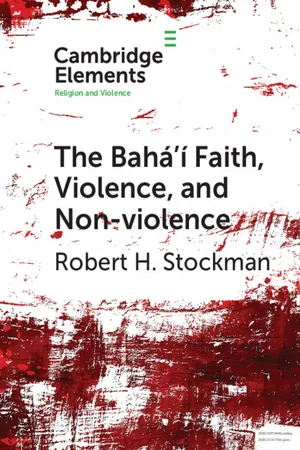The Bahá’í faith, rooted in principles of unity and justice, positions itself distinctly against violence. In a world rife with tumult and conflict, the tenets of this religion provide compelling guidance on how to navigate the complexities of human relationships. The teachings advocate for a paradigm shift—transforming not only individual actions but also collective consciousness. This exploration into the Bahá’í stance against violence invites a profound reflection on our responsibilities as global citizens.
At the core of Bahá’í teachings is the belief in the oneness of humanity. This fundamental principle posits that all people, irrespective of their national, racial, or religious backgrounds, share a divine essence. By understanding this intrinsic connection, individuals are encouraged to see beyond superficial differences that often lead to discord. The Bahá’í teachings argue that violence arises from disunity and misunderstanding; thus, cultivating a global perspective is pivotal in eradicating conflict.
One of the salient aspects of the Bahá’í faith is the emphasis on education as a powerful antidote to violence. Knowledge and enlightenment are positioned as foundational tools for personal and societal transformation. Bahá’u’lláh, the founder of the Bahá’í faith, firmly asserted that “the greatest gift of God” is knowledge, which illuminates the path to peace. Educational initiatives within Bahá’í communities focus on fostering critical thinking, empathy, and moral reasoning, enabling individuals to reject violent tendencies and embrace dialogue and understanding instead.
Moreover, the Bahá’í teachings urge followers to engage in constructive actions that contribute to societal betterment. Active participation in social and humanitarian endeavors is deemed a spiritual obligation. When individuals devote themselves to service, they create ripples of change that counteract the pervasive culture of violence. Initiatives such as conflict resolution workshops and community-building activities manifest these teachings, serving as practical applications of Bahá’í principles in everyday life.
In analyzing the destructive nature of violence, it is crucial to understand its roots in ignorance and fear. The Bahá’í faith elucidates that violence is often a manifestation of a lack of understanding, leading to misconceptions and both real and perceived grievances. To transcend this cycle, the teachings advocate for a comprehensive approach to conflict resolution, one that emphasizes dialogue and mutual respect. Each interaction becomes an opportunity to dismantle barriers and promote harmony.
Furthermore, the notion of justice within the Bahá’í framework is significant in understanding its anti-violence stance. Justice is not merely a legalistic term; it embodies moral rectitude and equity. The Bahá’í writings assert that true justice cannot coexist with prejudice or oppression. Thus, the pursuit of social and economic justice forms an integral part of the journey towards a more peaceful world. When individuals advocate for the rights and dignities of others, they foster an environment that discourages violence and promotes coexistence.
Another pivotal concept is the spirit of forgiveness and reconciliation. The Bahá’í faith encourages individuals to shed animosities and harbor a spirit of forgiveness, which can act as a salve for wounds inflicted by violence. This teaching does not connote passivity or the acceptance of injustices but instead emphasizes the psychological empowerment that comes from releasing grudges. By engaging in forgiveness, individuals liberate themselves from the shackles of resentment and enable healing within communities.
The global Bahá’í community exemplifies these principles in action, striving to create a model of a peaceful society rooted in diversity and respect. Institutions of the Bahá’í faith work towards fostering international cooperation, addressing global challenges such as poverty, inequality, and environmental degradation. These efforts reflect an understanding that violence often flourishes in the absence of social equity and environmental stability. By approaching these larger issues with compassion and an eye towards systemic change, the Bahá’í community actively contributes to a vision of a world free from violence.
Another remarkable facet of the Bahá’í faith is its commitment to gender equality, recognizing that empowerment of women is essential for societal transformation. In patriarchal societies, where gender-based violence is prevalent, the Bahá’í teachings assert that women’s rights must be championed as a matter of principle and justice. Educating women and ensuring their participation in all aspects of life is not only a moral imperative but a strategic one for achieving lasting peace.
In conclusion, the Bahá’í perspective on violence offers a profound, multifaceted approach that seeks to address the underlying causes of conflict. By promoting the oneness of humanity, advocating for justice, and embracing forgiveness, the teachings compel individuals to reconsider their roles in perpetuating or alleviating violence. Through education and service, Bahá’ís forge pathways toward understanding and reconciliation in an increasingly polarized world. The call to action is clear: choose unity over division, peace over conflict, and let these principles guide humanity towards a brighter, more harmonious future.
